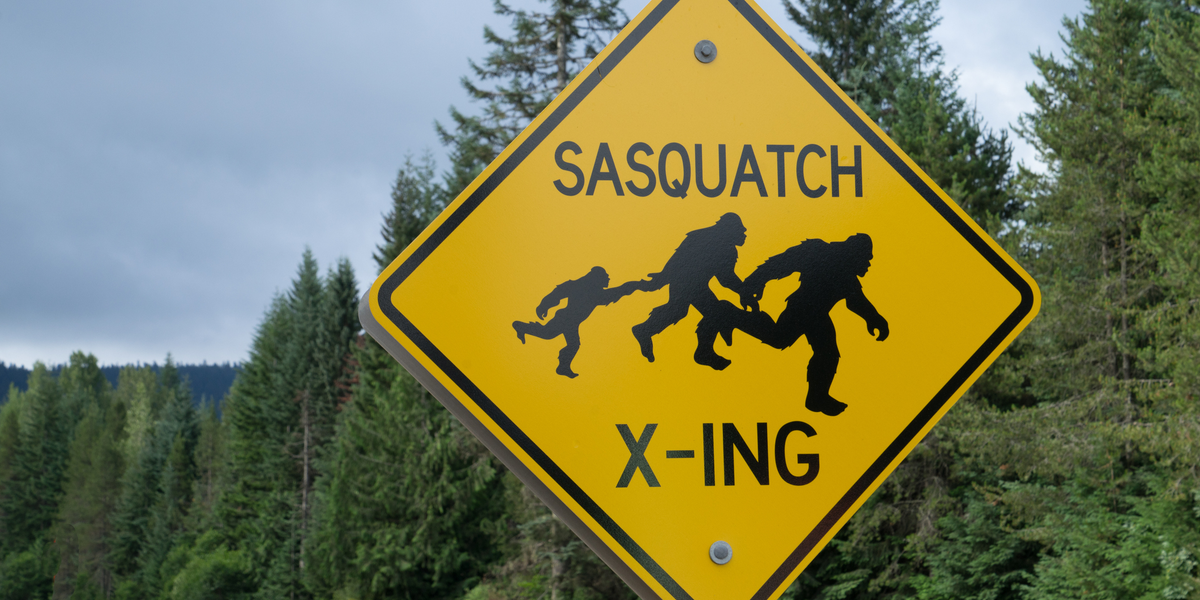America is a nation of conspiracy theorists. Here are the most commonly believed in phenomena. – Insider

- Nearly 80% of Americans believe in at least one unscientifically proven idea, according to a new INSIDER poll.
- Health and wellness beliefs, such as the benefits of aromatherapy and essential oils, were most popular.
- A third of those polled said they believe in at least one conspiracy theory, from the Illuminati to extraterrestrials visiting earth.
- Thankfully, only 2.3% of respondents identified as flat earthers.
- Visit INSIDER’s homepage for more stories.
Americans believe a whole lot of specious things, a new INSIDER survey conducted through SurveyMonkey Audience found.
Though the nation hardly needs to be reminded that a lot of people believe in sketchy ideas when, just last week, over 1 million people responded to a prank event about storming Area 51 in late September, the new survey finds that lots of people self-report believing some out-there stuff.
According to a new INSIDER poll, nearly 80% of Americans believe in at least one unscientific idea. Theories surrounding wellness are more popular: Two-thirds of respondents held at least one pseudoscientific health belief. A third of Americans said they believe in at least one conspiracy theory.
The poll asked over a thousand respondents, “If any, which of the following unproven ideas, paranormal phenomena or general beliefs do you believe to be credible?,” allowing survey-takers to select from a list of 15 choices, including options like “the existence of chemtrails” and “the efficacy of crystal healing,” as well as “None of these.”
The complete breakdown of beliefs:
- Health benefits of meditation: 50% (control)
- Health benefits of essential oils: 34%
- Ghosts, spirits, and other paranormal specters exist: 31%
- Health benefits of aromatherapy: 31%
- Technologically advanced civilizations existed prior to modern era: 21%
- Extraterrestrial visitors have come to earth: 20%
- Efficacy of homeopathy: 19%
- Illuminati, or a group of powerful people exerting control over world events: 16%
- Unclassified organisms like “bigfoot” or “yeti” or “Nessie” exist: 14%
- Astrology is real: 13%
- Numerology: 8%
- The existence of chemtrails: 7%
- Palmistry, seances and psychic readings are real: 7%
- Efficacy of crystal healing: 6%
- Flat earth: 2%
- None of these: 21%
Belief in the benefits of meditation was the most popular belief, with half of respondents answering that they felt there are health benefits associated with the practice. While some studies have suggested that meditation can reduce stress and improve focus, the science is still considered so early that a large group of researchers published a paper last year cautioning that “poor methodology” associated with previous studies may have misled the public.
Next up were beliefs in essential oils, spirits and ghosts, and aromatherapy, all of which were thought to be credible by about 30% of respondents.
Read more: 35 of the most popular conspiracy theories in the US
Bona fide conspiracy theories — such as the idea that the Illuminati, an elite and enlightened in-group, exerts control over world events, or the theory that the condensation trails behind airplanes are chemicals sprayed on the public — were less widely believed. Sixteen percent and 7% found the Illuminati and chemtrails to be credible, respectively.
Aliens, on the other hand, enjoyed more popularity, with one in five Americans believing that extraterrestrials have visited earth.
Despite a recent uptick of interest in horoscopes, only 13% of those surveyed found astrology to be legitimate — one percentage point lower than the number of people who believe in the existence of creatures like Bigfoot and Nessie.
As for least popular pseudoscientific beliefs, psychic readings and crystal healing came in close to last. Despite a growing lifestyle trend surrounding the power of crystals, only 6% of those polled said they actually believed in the effectiveness of crystal healing.
Most reassuring of all, flat earth, the theory that the earth is a plane rather than a globe, bottomed out the list with only 2.3% of the vote.
Read more:
This college course teaches you how to call out things that are unscientific
What scientists can teach us about fake news and disinformation
15 bewildering conspiracy theories that celebrities think are true
SurveyMonkey Audience polls from a national sample balanced by census data of age and gender. Respondents are incentivized to complete surveys through charitable contributions. Generally speaking, digital polling tends to skew toward people with access to the internet. SurveyMonkey Audience doesn’t try to weight its sample based on race or income. Total 1,006 respondents collected July 9 to July 10 2019, a margin of error plus or minus 3.15 percentage points with a 95% confidence level. See this page for more details about methodology.
*** This article has been archived for your research. The original version from Insider can be found here ***


